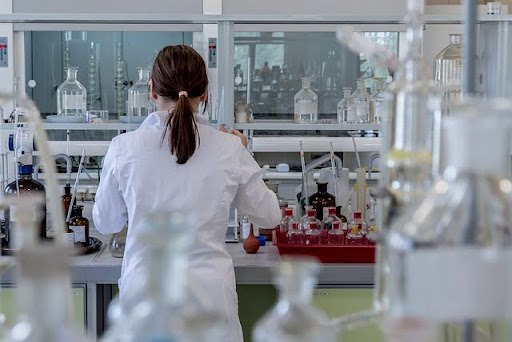Advanced Placement classes have become popular in recent years with students. Collegeboard, the most prominent American company used in secondary education systems, created a plethora of new classes for students to take.
The Statistics
Often reported to be one of the hardest AP classes, AP Chemistry has had rising failure rates in the past five years. In 2022, only 54% of students who took the AP Chem final exam actually passed and were able to obtain college credit. AP Chemistry, along with AP Physics and AP Music Theory, is one of the most failed AP classes in the US. However, there are a lot of advantages to taking such an advanced class, especially when it comes to upperclassmen. Those who earn a three and above can obtain college credit at most colleges and universities.
AP Chemistry is most commonly taken by juniors and seniors, usually who have taken at least Algebra 1, Algebra 2, and Geometry. The class is heavily math-focused, with difficult calculations being common in each unit. Students must also complete the prerequisite of having taken regular chemistry, which is normally taught either freshman or sophomore year, depending on the school. Some schools also require a basic biology class to be taken. This guarantees a solid understanding of math, life science, and chemistry in order to set a student up for success.
A Teacher’s Perspective
The class itself moves fast. With nine information-dense units, AP Chemistry teachers have their work cut out for them. Lee Lentz, a long-time AP Chemistry teacher was interviewed. She has been teaching AP Chem for eight years, and teaching regular chemistry courses to sophomores for many years. When asked about the curriculum from Collegeboard she said, “It’s complicated, but it’s up to me on how to teach it. I like the flexibility.”
I also asked Lentz to tell me a little bit about the course as a whole. Though I personally am already taking AP Chemistry this year, I wanted to get all of the details straight from the source. “They can expect a mix of tests, quizzes, labs, and projects. Classwork and homework aren’t graded.” Lentz says it is up to the student how much effort they want to put in outside of class, as she does not normally check homework for correctness or completion.
When asked if she would change anything about the course, she said she would change “The way that the Free Response questions are done. They changed it recently to make the format easier for students. Personally, I would like to be in the grading room to learn more about the way APs are graded.”
Lentz added that she wants the way colleges accept AP classes to be more straightforward. Not all scores are accepted at all schools. Most state schools take a three or above, but often students will have to take certain classes in college depending on their major. When asked how difficult the class was out of ten, with ten being the most challenging, she gave the class a seven. She noted that the most difficult unit in the class was acids and bases, toward the end of the year.
A Student’s Perspective
I also wanted to get the perspective of a student, but I didn’t want to include my own personal biases. So I interviewed Lily Friend, a senior at Pentucket who already took AP Chemistry. “It was one of my all-time favorite classes,” said Friend. “I also liked the day-to-day work. It was mostly notes and practice problems…it was a comfortable format.”
Friend continued on to say that the class prepared her well for the exam. “It was a fair exam and was very similar to the practice work that we did in class.” When asked about the main content of the exam, Friend said, “It was a lot of thermochemistry and stoichiometry.” Friend said that an important part of AP Chemistry is advocating for yourself and asking for help when you need it, because it is a very difficult class, content-wise. Friend adds, “Don’t wait until right before the quiz or test to ask for help.” Friend advises that students learn as they go, as most scientific knowledge builds off of prior knowledge through making connections. It is important to pay attention in 1st year chemistry in order to do well in AP Chemistry, and other chemistry classes in the future.
Overall, AP Chemistry is a difficult class that tackles a multitude of topics. Students must have a good base knowledge of chemistry and math in order to succeed. However, the course is fascinating and helps prepare students for future careers in science, math, and engineering.



















Jocelyn Travis • Jan 29, 2024 at 9:51 am
I think that this article is very helpful, and highlights the challenges, but also the rewards that can come from taking a class like this. I like how you included statistics, and what classes you would need to take to succeed in AP Chemistry. As someone interested in taking the class, it is helpful to get some insight into the workload, and where other students would place it on a scale based on difficulty.
Lillian Friend • Jan 23, 2024 at 12:23 pm
I love how this is a very honest perspective on AP Chem! I really appreciate how you show that the class is indeed a challenge and is to be taken seriously, but it isn’t so hard that it isn’t worth the challenge or isn’t enjoyable. Thanks for covering one of my all-time favorite classes!